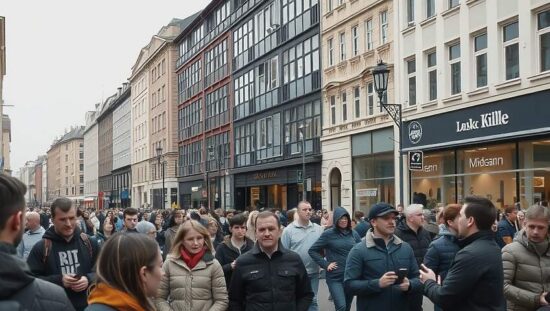Germany is facing a burgeoning drug crisis, with local authorities increasingly overwhelmed by escalating consumption, particularly in public spaces. This assessment, voiced by Federal Drug Commissioner Hendrik Streeck (CDU), highlights a critical shortfall in proactive measures and a growing strain on municipal resources.
Speaking to the “Rheinische Post”, Streeck emphasized a marked rise in the use of cocaine, crack and synthetic substances across various regions. He specifically noted the alarming accessibility and affordability of potent drugs – a combination fueling the upward trend. Current responses, he argues, remain largely reactive, a pattern he links to past failings during the COVID-19 pandemic where trends were recognized and addressed too late.
This diagnosis follows a similar warning issued on Friday by Interior Minister Alexander Dobrindt (CSU), further amplifying concerns within the government. The situation, Streeck asserts, is indicative of an emerging crisis that demands a significantly enhanced, cross-departmental collaborative approach. He calls for a unified front encompassing law enforcement (police, customs, BKA), the justice system, local governments, healthcare providers, addiction services and preventative programs.
Critics suggest that existing policies have failed to adequately address underlying socio-economic factors driving drug use and that a solely punitive approach is unsustainable. The commissioner’s call for better coordination underlines a recognition that a multifaceted solution – prioritizing both prevention and support – is essential to mitigate the escalating risks and protect communities amid this deepening crisis. The effectiveness of this proposed inter-agency collaboration, however, remains to be seen, particularly given the challenges often encountered in navigating competing jurisdictions and priorities within the German bureaucratic system.





